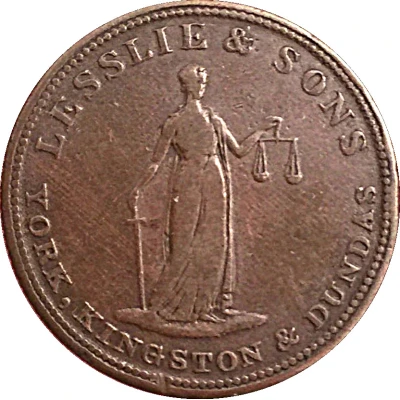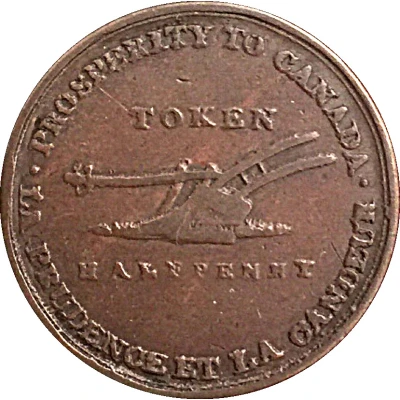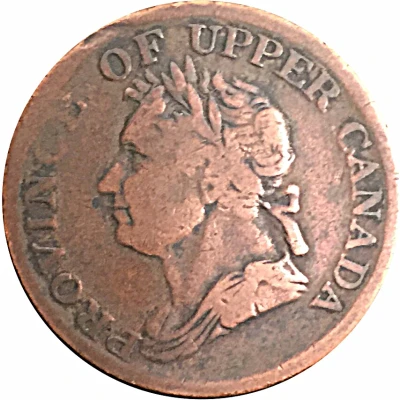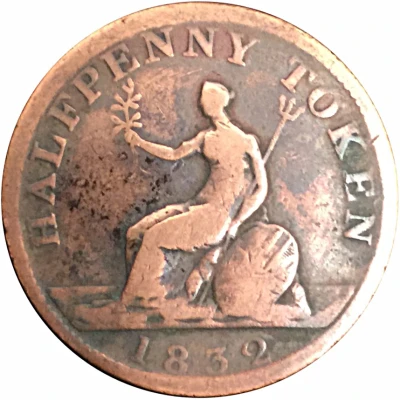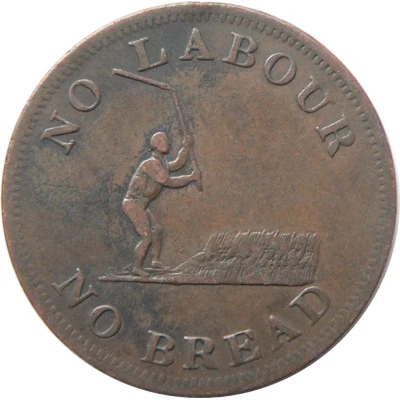
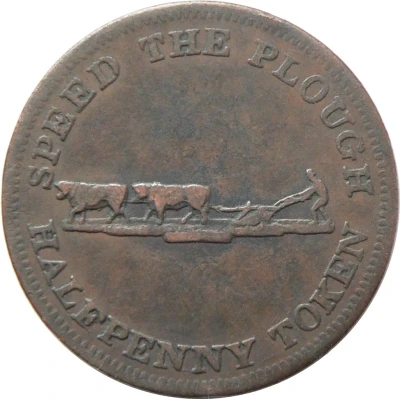

© ZacUK
½ Penny - Perrins Bros speed the Plough - No labour, No bread ND
1830 year| Copper | 6.2 g | 26.1 mm |
| Issuer | Upper Canada (Canadian provinces) |
|---|---|
| Type | Token |
| Year | 1830 |
| Value | ½ Penny (1⁄480) |
| Currency | Pound |
| Composition | Copper |
| Weight | 6.2 g |
| Diameter | 26.1 mm |
| Shape | Round |
| Technique | Milled |
| Orientation | Coin alignment ↑↓ |
| Demonetized | Yes |
| Updated | 2024-10-04 |
| Numista | N#73607 |
|---|---|
| Rarity index | 78% |
Reverse
Man driving plow with 2 oxen left
Script: Latin
Lettering:
SPEED THE PLOW
HALFPENNY TOKEN
Edge
Plain
Comment
Weight: 6.0 - 6.5gDiameter: 26.1 - 26.2mm
UC-4A1 Obv: Long threshing floor, Wheat table ends vertically, ground points to left seriph of "N", Rev: Man far from "H" of PLOUGH
UC-4A2 Obv: Short threshing floor, Wheat table ends diagonally, ground points to left seriph of "N", Rev: Man near "H" of PLOUGH
UC-4A3 Obv: Long threshing floor, Wheat table ends vertically, ground points to middle of "N", Rev: Man near "H" of PLOUGH
The original token was introduced by a dry goods merchant, Perrin Brothers, of Toronto.
If, for example, someone brought in a few beaver pelts to trade for food, Perrin Brothers would pay with the tokens.
It was a lot more convenient to shop with tokens than beaver pelts, which were fetching about £1 in 1827.
There were two categories of currency back then: coin made and backed by the government and tokens that anyone could produce for trade purposes. Tokens were subsequently outlawed in 1825 in an effort to standardize currency and in 1830 a bunch of the Perrin Brothers tokens were seized by the government and melted down.
http://www.househunting.ca/story.html?id=e352a75d-f6ec-47ad-9915-2010bc448b65
Interesting fact
One interesting fact about the A Token ½ Penny - Perrins Bros (speed the Plough - No labour, No bread) ND (1830) from Upper Canada (Canadian provinces) made of Copper weighing 6.2 g is that it was used as a form of currency during a time when there was a shortage of official currency in Canada. The coin was issued by Perrins Brothers, a company that produced agricultural tools, and it features an image of a plough on one side and the phrase "Speed the Plough - No Labour, No Bread" on the other. The coin was made of copper and had a value of ½ penny. It is an interesting piece of numismatic history that highlights the resourcefulness and innovation of people during times of economic hardship.
